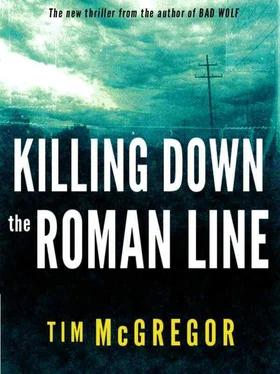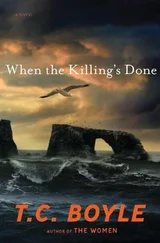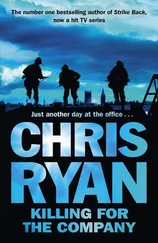“Let it go, Jimmy. No good can come of it. Now gimme my drink before I knock your teeth in.”
Jim smiled, returned the cup to him. “Drink up. Then we’ll go.”
~
Gallagher rode shotgun, directing Jim back up Newcastle to Galway. Jim tried a little chitchat, asking the old man what he thought of the festival but Gallagher just grunted and jostled along on the bench seat.
“Take Hamilton, come up behind town hall.” Gallagher cocked a thumb at the next street. “We don’t want anyone seeing us.”
A naked bulb lit the loading dock at the rear of the town hall building. Next to it, a door marked as a staff entrance. To the left another door, unlit and unmarked.
Gallagher slid his legs out and disembarked slowly. Jim stifled the urge to lift the old man out like a toddler.
“This way.” Gallagher nodded to the unmarked door. He picked through a ring of keys, squinting in the squalid light.
“Do you want a hand?”
“Here.” He slotted the key into the lock and pulled the handle. A squeal of rust grinding together. “Watch your step.”
He patted the wall for the switch and a bulb popped on. Steps leading down and a brittle handrail that looked ready to fall. Gallagher grunted down each step, knees in agony, until they gained the landing.
Stacks lined both sides of a long room, shelves crowded with dusty boxes. Rows of folding chairs stacked against a wall. Enormous picture frames left to rot in the corner. Cobwebs and the damp smell of mould.
“What is all this?”
“Archives,” said Gallagher. “Records and documents. Land surveys and marriage records. Junk.”
Gallagher shuffled down the aisle. Jim let the old man lead the way at his glacial pace. He looked over the shelves, snooping. Old plaques and a broken bust of Churchill, a mounted stag’s head with its black marble eyes. Portraits of the queen shrouded in plastic sheeting. One shelf held nothing but globes, a dusty constellation of earths mapped out with dominions and empires that no longer existed. All of it cast in shafts of light bleeding through the stacks.
Gallagher snailed past it all to the far end of the room and stopped before a bookshelf. Tall but narrow, the wood yellowed with age. “Here,” he said, waving at the shelf. “Help me move this.”
“What for?”
“Just take your end.”
Jim pulled the shelf forward, scraping it across the gritty floor. Books tumbled and flopped open on the concrete. Jim gathered them up. “What exactly are you showing me?”
“Hidden things, buried long ago.” Gallagher straightened up, a hand to the small of his back. “My father was the magistrate for this township. As was his dad before him.”
“Magistrate?” Jim cocked an eyebrow. Old Gallagher had been the custodian for the town hall and library for thirty years before retiring. Or was forced to retire, according to him. He’d been a gravedigger too, as a younger man, and often told gruesome stories about what really happened to the dead at the Queen’s Lawn Cemetery out on the other side of river. “So what happened to you? Didn’t follow the old man into the family business?”
Gallagher wheezed, dust roiling around him. “Stuffed shirts like that, not for me. Corrupt too. You wouldn’t believe the shenanigans my old dad used to tell me. So no, I was not one for the family business. Preferred honest work myself. Digging bones out of the graveyard to make way for new ones was cleaner work.”
Something ran over Jim’s foot, nails ticking on the floor. Jim jumped, repulsed like a schoolgirl. “What the fuck was that?”
“Rats. The place is infested with them.” Gallagher laughed at him then nodded to the shelf, grasping his end. “One more tug, just a little further.”
They scraped the shelf another foot, Jim scouring the floor for more vermin. He circled but saw no more rats. The old man snickered at his little jig and Jim groused at him. “Just get on with it, for Chrissakes. Then we can get out of here.”
The old man lowered his bulk down to one knee, wincing as his arthritic knee touched the damp slab floor. Smoothing his palm over the clean patch of wall where the shelf had been. His fingertips traced a faint line in the stucco. He made a fist and banged the wall. The line deepened into a seam and Jim saw the patch of wall held a removable frame. A rectangle, three feet tall by two wide. Gallagher pushed one end in until the other end popped free. Shimmying the rectangle back and forth, he slid the false panel free. “Take this.”
Jim gripped the frame and leaned it against the shelf. On the wall before them gaped a rectangle of darkness. Gallagher reached into it and Jim winced, imagining the old man’s hands plunging into a nest of rats. The old man grunted and tugged, hauling something out of the breach. It tipped over the edge and thudded to the floor.
“What is that?”
Gallagher wiped his sleeve across the top, clearing the dust. A metal strongbox, girded in iron and studded with brass. The lid fixed with a tongue and hoop but no lock.
“Bad business.” Gallagher reached his hand out to Jim. “Help me up. This cold floor is murdering me.”
Jim steadied him as the old man swayed on bad legs. Gallagher nodded to their find and Jim lifted the strongbox to a workbench. A lamp was switched on. Jim flipped the lid up and stepped back, expecting to see more vermin lunging for his throat with evil little teeth. A long-legged spider crawled up the lip and disappeared down the side. Nothing more.
Gallagher reached in and pulled out a folio of cracked leather tied with butcher’s string. He worked the knot loose and folded back the cover. The leather cracked, fragmenting away. Laid bare to the lamplight was a stack of paper, brittle as papyrus. The old man coughed. “Read it.”
Jim didn’t move. The old man held the page out to him. A list, written in a flowing cursive. The date at the top read 1898.
“The names of the men charged in the murder of the Corrigan family,” Gallagher said. “Read it.”
Jim studied the calligraphy, deciphering as best he could and read aloud. “Jonathan Hitchens, Edward McGrath, James Puddycombe, Thomas Farrell, William Berryhill…” He dropped the paper like it was poison, letting fall back to the workbench. He looked at Gallagher. “All of these men were charged? Why is this here? Why is there no record of this?”
Gallagher coughed again. “The magistrate of the time decided to keep it secret.”
“Your great-grandfather?”
“Yes.”
Jim swallowed. The taste of dust on his teeth. “Were they guilty?”
The old man nodded.
“But there was no trial.” Jim shook his head, denying it. “No charges were ever laid.”
“It was done quietly. Sort of a gentlemen’s agreement until the authorities got to the bottom of it. The charges were later dismissed.” He brushed the dust from his hands. “Everyone knew these men were guilty but they kept mum. A story sprang up about a gang of escaped convicts, running loose over the countryside. Everyone went along with the lie.”
Jim backed away from it. “Then why the list? If there was no trial, no charges, why is there this list?”
“There was still an investigation. The guilty parties couldn’t hold their tongues and all were brought before the magistrate.” Gallagher sifted the pages in the folio. “These are all confessions. Judge Charlton Gallagher made each and every man dictate and sign. Then he put them all into this box and hid the damn thing away.”
Jim shook his head again, as if he could wish it all away. “Why? Why would he cover it up like this?”
“To keep the peace. There’s more than twenty names on that list. And those are just the men who committed the deed. Add to that everyone who knew what had happened, that’s half the town.” Gallagher slipped a page free from the pile and held it up. “Here. You need to see this.”
Читать дальше












